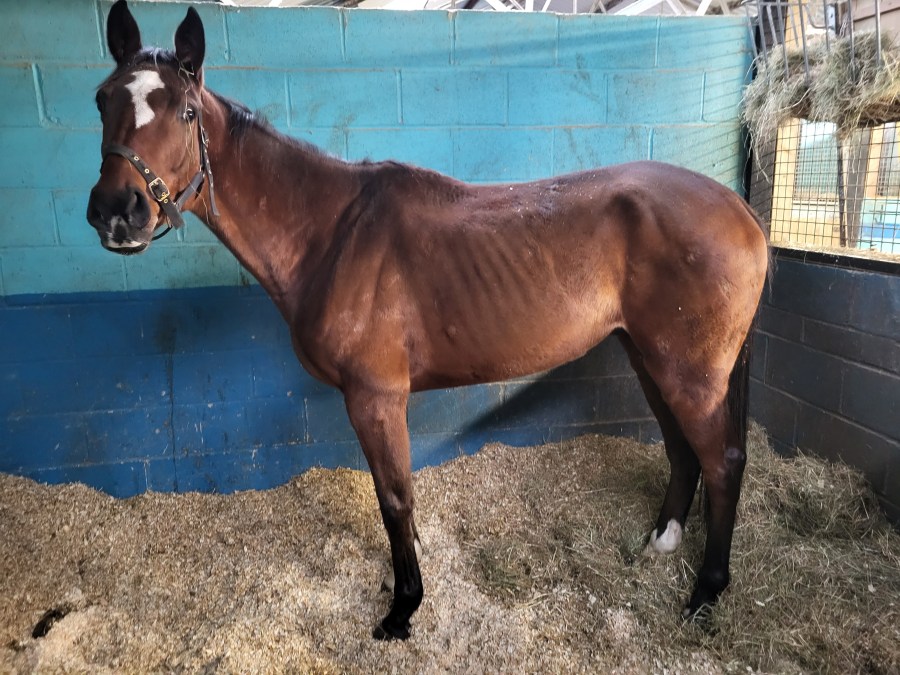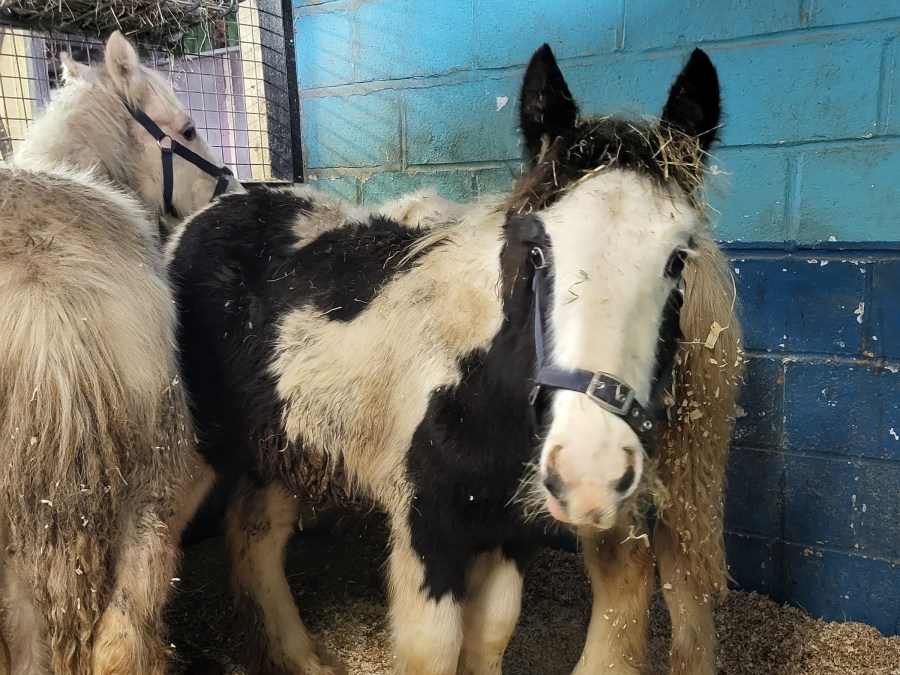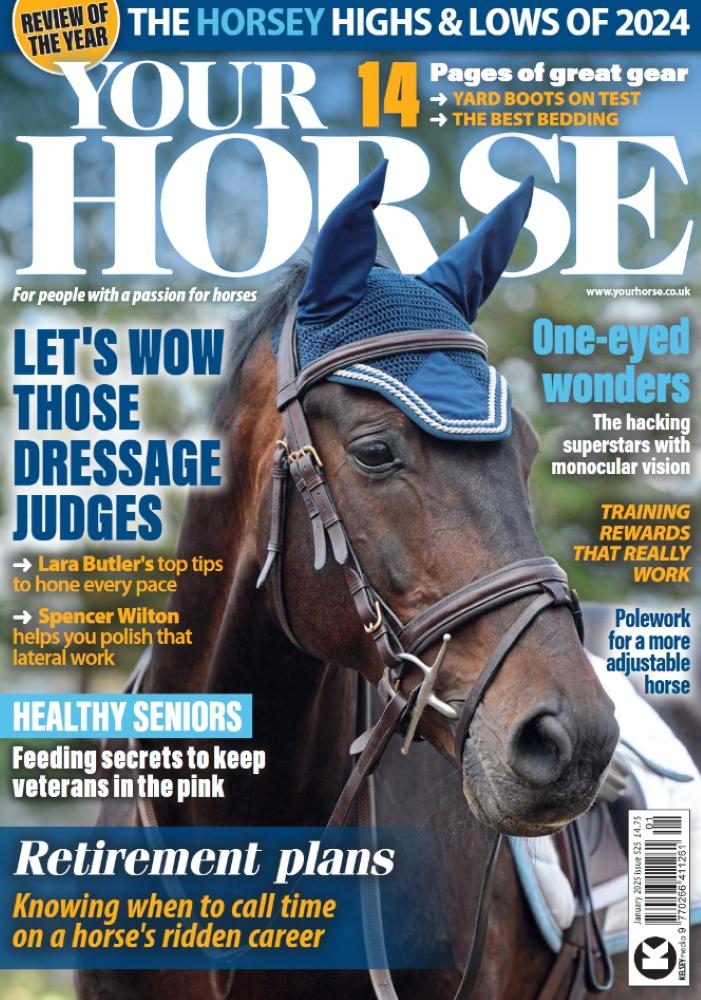A year after 26 horses were found crammed onto a transporter in Dover to be exported to Europe, a lorry load of equines likely to be heading for the same fate has been discovered.
The vehicle that the horses were travelling in was stopped for inspection at Dover port and officials discovered a foal on the floor unable to stand up. On further investigation, officials discovered 20 horses, many of whom were sick and weak, being transported in horrific conditions. The horses were sent to safety in a nearby holding yard.
World Horse Welfare was contacted and deployed members of its team to assist. Although the charity cannot be sure why the horses were being smuggled or to where, they believe some were headed for fattening and slaughter despite last year’s ban on live exports from the UK.
‘Heart-breaking scene’
“At the holding facility I was faced with a heart-breaking scene,” said World Horse Welfare field officer Rebecca Carter. “The equines were so still and quiet and appeared shell-shocked from their ordeal.
“A number of the horses were underweight and had strangles, a highly contagious bacterial and potentially fatal infection — with the infected horses suffering from painful abscesses and fever.
“Two also had pneumonia, and some were suffering from skin conditions and various other health issues.
“There were three unhandled foals who were matted with faeces as nobody could get hold of them to clean them up,” added Rebecca. “They were completely terrified and when I approached them, they buried their heads into each other and huddled together in a corner of the stable.”
Evidence they had once been well looked after
“Overall, it was an incredibly sad sight to see this very mixed group of horses, some of which were fully clipped and shod, so previously well cared for, now looking bewildered, poor and depressed, with vacant expressions,” continued Rebecca.
“It’s not just the health of these horses which was put at risk. There’s a bigger issue here in that these horses were carrying highly contagious diseases and therefore a biosecurity threat to all those they came in contact with.”
The horses, who have been called the ‘Trafficked20’, comprised Irish Thoroughbreds, Connemaras and leisure ponies, alongside animals that were being moved legitimately.
Sadly, five of the Irish Thoroughbreds had to be euthanised. Of the remaining horses, seven were claimed by their owners, and eight were abandoned and signed over to World Horse Welfare’s care.
Recovery and rehabilitation begins
Following a period of quarantine, the eight abandoned horses, which included a pregnant mare named Amy, a pony called Kevin who was battling a severe skin infection, three foals, two Irish Thoroughbreds and a riding pony, have been moved to the charity’s Hall Farm Rescue and Rehoming Centre in Norfolk.
The charity Retraining of Racehorses provided support and funding for the two Thoroughbreds.
“We applaud the Animal and Plant Health Agency (APHA) for stopping the transporter in the first instance and ensuring the horses were taken to a safe holding yard,” said World Horse Welfare chief executive Roly Owers.
“Thanks to their quick actions, these horses were relieved from their horrendous journey and given the care they desperately needed.”

Exploited for profit
“We always knew that the passing of the Animal Welfare (Live Exports) Act 2024, whilst a huge step forward, was never going to work in isolation,” continued Roly. “Nevertheless, it is shocking to have been involved in another high-profile rescue of equines at Dover, many of whom were very likely being exported for slaughter.”
It is estimated that it will cost more than £56,000 to care for and rehabilitate the rescued group, and an impassioned email from Roly was delivered this afternoon asking members of the public to donate what they can.
“We make no apology for sounding like a broken record, and pretty much on the 12th anniversary of the horse meat scandal, without a proper, robust digital equine identification and traceability system in the UK and across Europe, the welfare of equines being transported will never be fully protected.
“We believe that horses are regularly being transported out of the UK illegally and until such a system is in place, horses will continue to be exploited for profit.”
Images and video © World Horse Welfare
Related content
- ‘Dover 26’ horses rescued from being smuggled last year are seeking new homes
- Latest vet advice about highly contagious strangles
- UK bans live export of horses for slaughter
- Petition set up with the aim of updating the Dangerous Dogs Act to better protect horses
- Public attitudes towards horse sport ‘on the right track’ but there is still more to do










